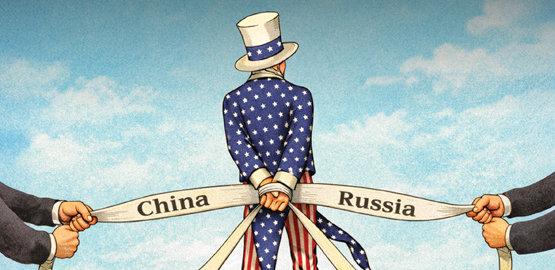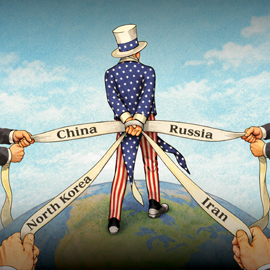News
Getting Serious About Strategy in the South China Sea
America is suffering from a strategy deficit in the South China Sea. For nearly a decade—and at accelerated speed since 2014—Beijing has been salami slicing its way to a position of primacy in that critical international waterway, while eroding the norms and interests Washington long has sought to defend. To date, however, Washington has struggled to articulate an effective response. The Obama administration opposed Chinese maritime expansion rhetorically and worked to improve the overall American military and geopolitical posture in the Asia-Pacific. Yet the administration only occasionally mustered the leverage necessary to check China’s quest for dominance of the South China Sea, and often it was unable even to impose substantial long-term costs on Beijing for its short-term assertiveness. For its part, the Trump administration has yet to formulate or implement a coherent South China Sea strategy, and it has swung from suggesting that America might deny Chinese access to islands in the South China Sea physically—something approaching an act of war—to appearing subsequently to deprioritize the issue.
Make Putin Pay for Cheating on Nukes
President Donald Trump’s continuing courtship of Russian leader Vladimir Putin is casting darkness over U.S. foreign policy. But there is a ray of light where Russia is concerned. The Pentagon is now reportedly beginning preliminary research on a ground-launched cruise missile that would be prohibited under the terms of the Intermediate-range Nuclear Forces Treaty. This is an overdue step toward making Russia pay for its violations of that accord, and perhaps even positioning America for strategic advantage in a post-INF world.
The Unexceptional Superpower: American Grand Strategy in the Age of Trump
Prediction is a perilous endeavour in international politics; world events often make fools of those who claim to foresee them.1 It seems certain, though, that historians will someday view Donald Trump’s presidency as an inflection point in the trajectory of American grand strategy and the US-led international system. To be sure, ‘grand strategic’ may not be the first phrase that comes to mind regarding Trump, whose indiscipline and outbursts, unfamiliarity with key issues and unexpected changes of course have led many observers to conclude that his foreign policy lacks any structure whatsoever.2 Just under a year after Trump’s inauguration, however, it has already become clear that Trump’s presidency is freighted with grand-strategic significance.
Commentary: How Trump can prevent a nuclear Iran
Donald Trump has announced two important and long overdue changes to Iran policy. First, he committed to addressing the shortcomings of the Iran nuclear deal, without terminating it. Second, he called for a comprehensive strategy to counter Iranian aggression throughout the Middle East. More sanctions, however, will not be enough to accomplish either of these goals.
The Problem with Trump’s Terrorism Strategy? Trump
One constant of Donald Trump’s roller-coaster presidency is the tendency for his self-generated controversies tend to drown out discussion of more substantive issues. Case in point: By criticizing the widow of an American service-member slain in sub-Saharan Africa this month, Trump has initiated another spat with a Gold Star family as well as a low-grade crisis in civil-military affairs.
Trump’s Madman Theory Is Simply Crazy
Even in the Donald Trump era, it's not every day you see the chairman of the Senate Foreign Relations Committee publicly accuse a president from his own party of being a mental infant and leading the country down "the path to World War III." The spat between Trump and Senator Bob Corker has thus generated headlines for the window it has opened onto an astonishing rift between the president and one of the most powerful Republicans in Congress.

























